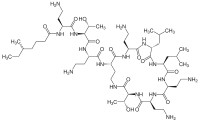
Photo from wikipedia
We read with interest the recent article by Chan et al (Gut, 2020; 0:1–10) analysing Fusobacterium diversity in the southern Chinese population.1 Fusobacterium nucleatum has been proven to be involved… Click to show full abstract
We read with interest the recent article by Chan et al (Gut, 2020; 0:1–10) analysing Fusobacterium diversity in the southern Chinese population.1 Fusobacterium nucleatum has been proven to be involved in the occurrence and progression of colorectal cancer (CRC); therefore, F. nucleatum has attracted more academic interest than other Fusobacterium species.2–5 Nevertheless, Chan et al ’s study made a critical observation: individuals in China (Hong Kong, Shenzhen and Zhejiang) with and without cancer harbour non-nucleatum types of Fusobacterium species as the dominating taxa. Similarly, Geva-Zatorsky et al reported that F. varium can exert a greater phenotypical impact in the host than F. nucleatum .6 Herein, we analysed the fusobacterial diversity in a Chinese population comprising 7009 individuals across 14 districts to provide a comprehensive understanding of Fusobacterium lineage distributions and their correlation with host parameters.7 8 Because the present dataset is based on 16S rRNA gene V4 sequencing, we first proved that these sequences can be …
Journal Title: Gut
Year Published: 2020
Link to full text (if available)
Share on Social Media: Sign Up to like & get
recommendations!